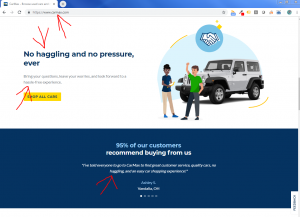When we talk about content, it's primarily not about writing an article about a 2020 Camry. It's about consistent, high-quality writing across all of your channels: website, social media, email, programmatic, paid search, and so on. Whether it's a script, a headline, body copy, descriptions, alt image tags, or something else, there's a lot more nuance and psychology to copywriting than I think a lot of small businesses understand.
To your exact point, a subfolder (definitely recommended over a subdomain) on the website for a blog isn't a bad idea once you've addressed other major content, SEO, and CRO issues across channels, which can then become part of ongoing work. If the blog is useful to people -- say some "how-tos" or highlighting tech or introducing a new model -- and it has time-on-site or other on-page actions that indicate to Google that it was worthwhile, it can help with authority and Google identifying the dealer as a quality source for this and, thus, similar information, as well as freshness and frequency, which we also know plays into the algorithm.
Again, I'd emphasize that this is not any work that you'd do upfront to "boost traffic" or as an expectation that you'd sell more cars (I've never heard any agency make a claim that a blog would result in selling more cars) or even in the first few months of partnering with an agency as there are more important things, but I wouldn't say the notion of content is B.S.









